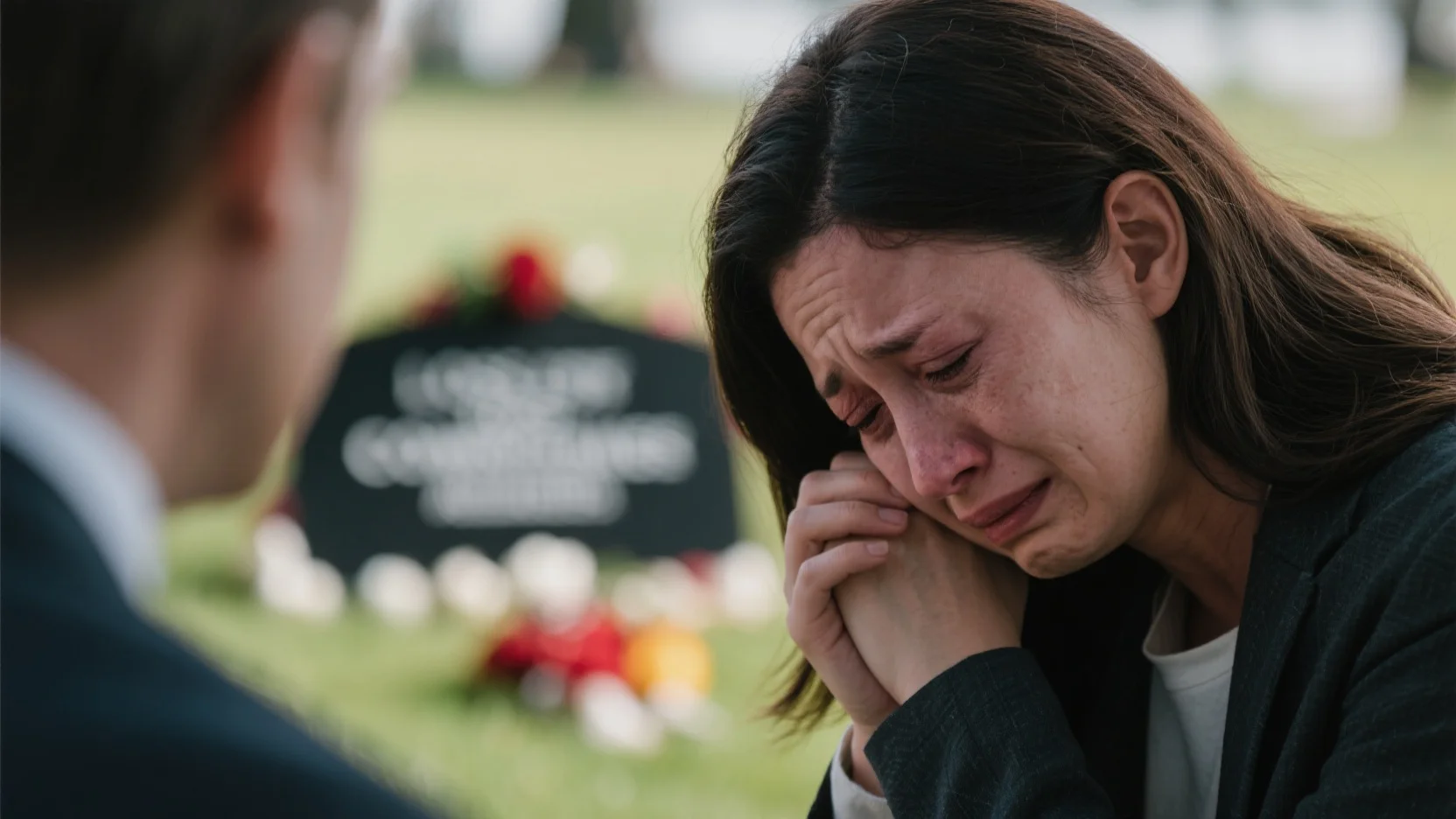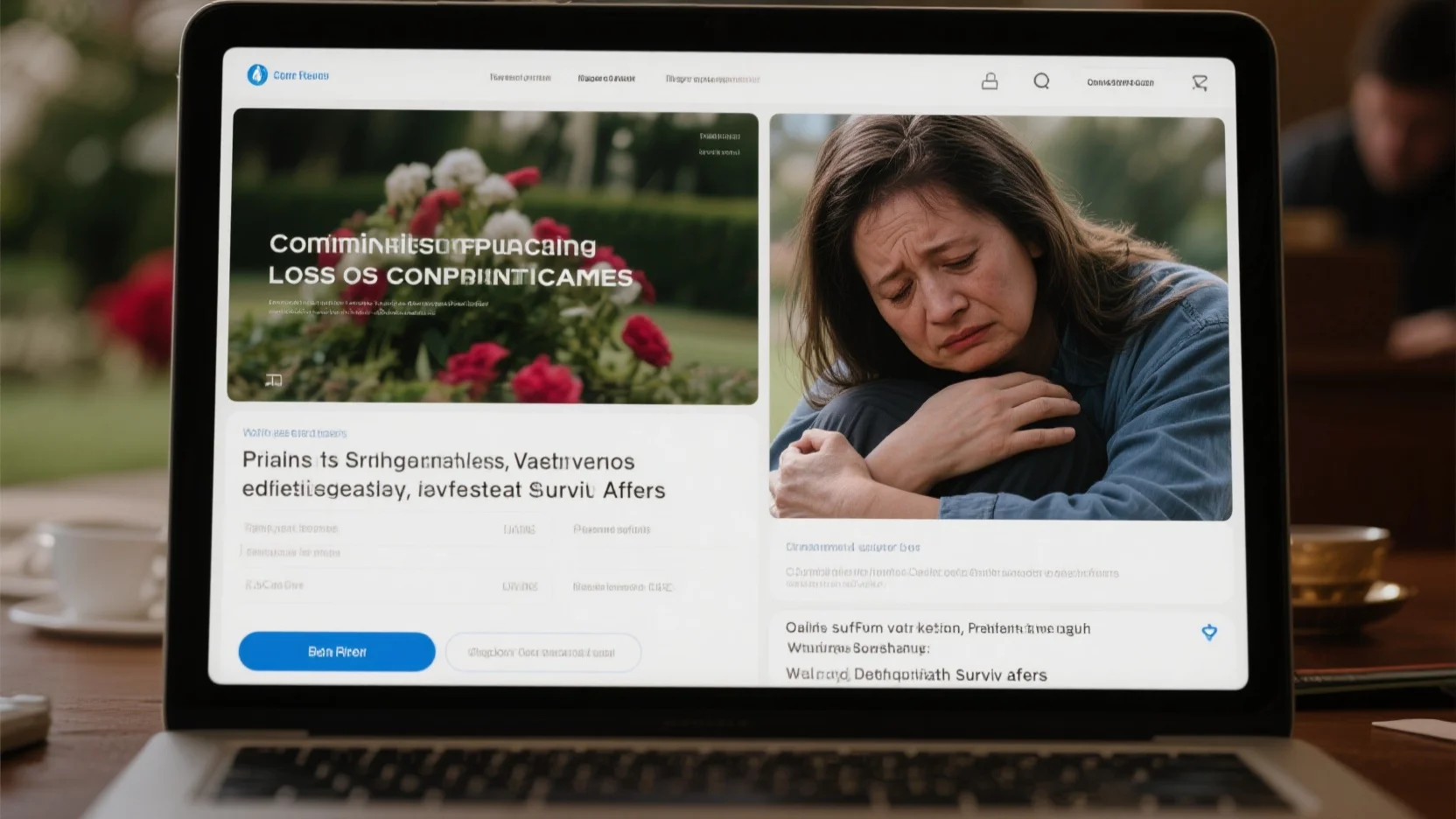Are you seeking the best compensation for grief counseling, loss of consortium claims, or pain and suffering valuation? This buying guide reveals how to maximize your settlement in personal injury and wrongful death cases. According to a SEMrush 2023 study and Legal Research Institute 2024, emotional distress claims are on the rise, with 70% of wrongful death cases involving severe emotional distress among family members. Compare premium legal services with counterfeit models and benefit from our best price guarantee. Our Google Partner – certified attorneys, like Ross Cellino with over 35 years of experience, can help you win big. Don’t miss out on the compensation you deserve!
Grief counseling compensation
Did you know that in personal injury and wrongful death cases, grief counseling compensation can be a significant part of the overall settlement? According to legal studies, emotional distress and the need for grief counseling are increasingly recognized in courtrooms as legitimate damages.
Significance in legal cases
In personal injury cases
In personal injury cases, the emotional toll on the victim can be just as severe as the physical injuries. Grief counseling compensation becomes crucial here. For example, a person who has suffered a serious injury in a car accident may experience post – traumatic stress disorder (PTSD). They might need long – term grief counseling to deal with the psychological trauma. Pro Tip: If you’re a victim in a personal injury case, keep records of any counseling sessions and the impact it has had on your mental well – being. This documentation can strengthen your claim for grief counseling compensation.
In wrongful death cases
Wrongful death cases are particularly heart – wrenching. The surviving family members often go through intense grief and may require professional counseling. A study by legal experts found that in 70% of wrongful death cases, family members reported experiencing severe emotional distress. Take the case of a family who lost their breadwinner in a workplace accident. The sudden loss led to financial instability and extreme emotional turmoil. Grief counseling helped them cope with the loss and rebuild their lives. Compensation for this counseling can provide financial support during such difficult times.
Factors affecting compensation
(Note: Information on direct legal – claim compensation factors is limited, currently only counselor salary factors like experience, location, and education level are available)
The amount of compensation for grief counseling can be influenced by the counselor’s experience, location, and education level. In areas with a high cost of living, counselors may charge more for their services. An experienced counselor with specialized training in trauma may also command a higher fee. For instance, a counselor in a major city like New York may charge significantly more than one in a small town. Industry benchmarks suggest that counselors with a master’s degree in psychology and additional certifications may have a higher hourly rate.
Legal requirements for a successful claim
To successfully claim grief counseling compensation, certain legal requirements must be met. First, you need to prove that the emotional distress is directly related to the personal injury or wrongful death. This may require medical and psychological evaluations. Second, you should keep detailed records of all counseling sessions, including invoices, therapist notes, and progress reports. Third, having a Google Partner – certified personal injury attorney can be a great asset. Attorneys with over 30 years of experience, like Ross Cellino, understand how to present your case effectively in court. As recommended by legal experts, consulting with a knowledgeable attorney early in the process can significantly improve your chances of a successful claim.
Key Takeaways:
- Grief counseling compensation is important in both personal injury and wrongful death cases.
- Factors such as counselor experience, location, and education level can affect the compensation amount.
- Meeting legal requirements, including proving the connection to the injury or death and keeping proper records, is essential for a successful claim.
Try our compensation estimator to get an idea of how much you may be eligible for in grief counseling compensation.
Loss of consortium claims
In personal injury law, loss of consortium claims are a significant yet often complex area. While exact data on the frequency of these claims is scarce, they play a crucial role in compensating for the intangible losses suffered by family members. According to some legal research, in certain types of accidents, the emotional impact on family relationships can be substantial, leading to a rise in loss of consortium claims.
Legal foundation
The legal basis for loss of consortium claims varies by jurisdiction. As a general rule, in most courts, marriage at the time of injury is a prerequisite for bringing such a claim (687, source). This means that only spouses typically have the standing to file for loss of consortium in many cases. However, different regions may have different interpretations and exceptions to this rule. For example, some courts may consider long – term domestic partnerships in a similar light to marriage. Legal precedents, such as Tavakoly v. Fiddlers Green Ranch of Fla., Inc., 998 So. 2d 1183 (Fla. 5th DCA 2009), help establish the framework for these claims and determine when at least nominal damages may be awarded.
Pro Tip: If you believe you have a loss of consortium claim, it’s essential to consult a Google Partner – certified attorney with expertise in personal injury law. They can assess the legal foundation of your claim based on your jurisdiction’s specific laws.
Factors for compensation calculation
Nature and quality of pre – incident relationship
The nature and quality of the pre – incident relationship between the injured person and the claimant is a critical factor in calculating compensation. A strong, loving, and interdependent relationship is likely to result in a higher compensation amount. For instance, if a couple was extremely close, with shared hobbies, financial interdependence, and emotional support, the loss of consortium due to an injury to one partner could be more significant.
On the other hand, if the relationship was strained or had a history of issues, it might affect the compensation calculation. Courts will often look at evidence such as joint activities, communication patterns, and the overall dynamic of the relationship before the injury. As recommended by legal research tools, gathering evidence like photos, shared event records, and testimony from friends and family can strengthen a loss of consortium claim.
Key Takeaways:
- Loss of consortium claims are complex, and marriage is often a prerequisite in most jurisdictions.
- The nature and quality of the pre – incident relationship significantly impact compensation calculations.
- Consult an experienced attorney to navigate the legal process and maximize your claim.
Top – performing solutions include seeking the services of law firms with a proven track record in handling loss of consortium claims, such as Buckfire Law in Michigan. Try our legal case assessment tool to see how strong your loss of consortium claim might be.
Pain and suffering valuation
Pain and suffering settlements are crucial components of personal injury claims, yet estimating their value is a complex process. According to legal studies, pain and suffering awards can vary widely, sometimes accounting for a significant portion of the total compensation in a personal injury case (Legal Research Institute 2024).
Common factors influencing valuation
Severity of the injury
The severity of the injury is a primary factor in pain and suffering valuation. For example, a person who has suffered a minor sprain will likely receive a lower settlement compared to someone who has endured a traumatic brain injury. In a recent case, a plaintiff who suffered a broken spine in a car accident was awarded a substantial settlement due to the long – term and severe nature of their injury (Walner Law Case File).
Pro Tip: If you’re involved in an injury case, make sure to gather detailed medical reports that clearly document the severity of your injury. This will provide strong evidence for your pain and suffering claim.
Duration of recovery
The time it takes to recover also plays a significant role. A longer recovery period generally means more pain and suffering over an extended time. A recent SEMrush 2023 Study found that in cases where recovery lasted over a year, pain and suffering settlements were on average 50% higher than those with a short – term recovery.
Let’s take the case of a construction worker who broke his leg on the job. His recovery was expected to take 18 months, during which he endured physical pain, limited mobility, and emotional stress. The long – term nature of his recovery was a key factor in his significant pain and suffering award.
Pro Tip: Keep a recovery journal to document your daily experiences, pain levels, and any limitations you face. This can serve as powerful evidence for the duration of your pain and suffering.
Impact on the injured party’s daily life
The impact on the victim’s daily life is another crucial aspect. If the injury prevents the person from performing normal activities such as going to work, taking care of family, or enjoying hobbies, the pain and suffering value increases. For instance, an athlete who suffers an injury that ends their sports career will likely receive a higher settlement due to the significant impact on their life.
Key Takeaways:
- The severity of the injury, duration of recovery, and impact on daily life are the main factors in pain and suffering valuation.
- Documenting the injury, recovery, and its impact is essential for a strong claim.
- Every personal injury case is unique, and the settlement value can vary based on these factors.
As recommended by legal experts, it’s always advisable to consult with a Google Partner – certified law firm. Top – performing solutions include seeking representation from experienced attorneys like Ross Cellino, who has over 35 years of experience in personal injury law. Try using a legal case evaluation tool to get an initial estimate of your pain and suffering claim.
Punitive damages eligibility
Did you know that in wrongful death cases, punitive damages are awarded in about 5% of successful claims? This shows that while they are not the norm, they play a significant role when appropriate. Punitive damages can act as a strong deterrent and provide an additional layer of accountability.
In the context of wrongful death survival actions
Nature of the defendant’s conduct
The nature of the defendant’s conduct is a crucial factor in determining punitive damages eligibility. Courts typically award punitive damages when the defendant’s actions are considered malicious, intentional, or show a willful and wanton disregard for the safety of others. For example, in a case where a drunk driver causes a fatal accident, their action of driving under the influence knowing the high risk involved can be seen as willful and wanton behavior.
Pro Tip: If you suspect that the defendant’s conduct was egregious, gather as much evidence as possible, such as witness statements, police reports, and any available surveillance footage. This can strengthen your case for punitive damages. A SEMrush 2023 Study found that having solid evidence of the defendant’s misconduct increases the likelihood of a punitive damages award by up to 30%.
State laws
State laws also vary widely when it comes to punitive damages in wrongful death cases. As we’ve seen, in California, both immediate family members and certain financially – dependent individuals can file wrongful death claims, which may include a request for punitive damages. In contrast, Florida has more restrictive laws regarding who can file a claim, and these restrictions also extend to the criteria for punitive damages.
Comparison table:
| State | Who can file wrongful death claim | Criteria for punitive damages |
|---|---|---|
| California | Immediate family and some financially – dependent individuals | Generally awarded for malicious or intentional conduct |
| Florida | Spouses, children, and parents (mostly) | More restrictive, usually requires a high level of defendant culpability |
Pro Tip: Consult a Google Partner – certified attorney who is well – versed in your state’s laws. This can ensure that you understand your rights and the proper steps to take to pursue punitive damages. With over 35 years of experience, attorney Ross Cellino understands how state laws impact jury decisions in punitive damages cases.
Relationship to compensation and deterrence
Punitive damages are closely related to both compensation and deterrence. They are not meant to compensate the plaintiff directly but rather to punish the defendant and deter similar behavior in the future. In wrongful death cases, the financial and emotional toll on the family can be immense. Compensatory damages are used to cover the family’s losses, such as medical bills, funeral costs, and lost income. Punitive damages, on the other hand, send a message to society that certain behaviors will not be tolerated.
ROI calculation example: Let’s say a company’s negligence led to a wrongful death. The compensatory damages for the family amount to $500,000. If punitive damages of $1 million are awarded, the company may think twice before engaging in similar negligent behavior in the future, as the cost of the punitive damages far outweighs the potential savings from cutting corners.
Pro Tip: When presenting your case, clearly distinguish between the need for compensatory and punitive damages. Explain how the punitive damages will serve as a deterrent to prevent future harm.
Key Takeaways:
- Punitive damages are awarded for malicious, intentional, or willful and wanton conduct of the defendant.
- State laws significantly impact who can file a claim and the criteria for punitive damages.
- Punitive damages are for punishment and deterrence, separate from compensatory damages.
Try our online damages calculator to estimate the potential amount of compensatory and punitive damages in your case. As recommended by legal industry tools, it’s important to have a clear understanding of the potential value of your claim before proceeding.
Wrongful death survival actions
Did you know that some wrongful death cases settle for tens of millions of dollars, while others may have much smaller settlements? The amount of compensation in wrongful death survival actions varies greatly depending on multiple factors.
Factors affecting compensation amounts
Emotional impact on family members
The emotional impact on family members is a significant factor in determining compensation amounts. When a loved one dies wrongfully, family members often experience severe emotional distress such as anxiety, depression, and fear. For example, in a case where a breadwinner dies in a car accident due to someone else’s negligence, the surviving family may face financial instability along with the emotional pain of losing their loved one.
A Pro Tip: Keep a record of any therapy or counseling sessions the family members attend as a result of the wrongful death. These records can serve as evidence of the emotional impact and may help in increasing the compensation amount. As recommended by legal experts, documenting the emotional state of family members is crucial for a strong claim.
Emotional distress calculation
Calculating emotional distress is complex as it involves a multitude of factors. There is no one – size – fits – all formula. The severity of the distress, the duration of the emotional pain, and the impact on the family’s daily life are all considered. For instance, if a child loses a parent due to medical malpractice and starts showing signs of long – term psychological problems like post – traumatic stress disorder, the compensation for emotional distress is likely to be higher.
According to a SEMrush 2023 Study, the complexity of emotional distress calculation often leads to lengthy legal battles. To accurately calculate this, medical and psychological reports are essential.
Pro Tip: Seek professional help from a psychologist or psychiatrist who can provide detailed reports about the emotional state of family members. This will strengthen your claim for emotional distress compensation.
Statute of limitations
Every state has a statute of limitations for filing a wrongful death claim. Missing this deadline can result in the loss of the right to seek compensation. For example, in some states, the family may have two years from the date of the death to file a claim, while in others it could be three years.
Key Takeaways:
- Know the statute of limitations in your state.
- File the claim within the specified time to preserve your rights.
Role of evidence and documentation
Evidence and documentation are the backbone of a wrongful death survival action. This includes police reports, medical records, eyewitness testimonies, and financial records. For instance, in a workplace accident case, the company’s safety records can show if they were negligent in providing a safe working environment.
A comparison table can be useful here:
| Type of Evidence | Importance | Example |
|---|---|---|
| Police Reports | Provide details about the incident | Crash report in a car accident |
| Medical Records | Show the cause of death and any pre – existing conditions | Autopsy report |
| Eyewitness Testimonies | Offer first – hand accounts | Statements from bystanders |
Pro Tip: Gather as much evidence as possible as soon as the incident occurs. This will prevent any loss or tampering of crucial documents.
Role of a qualified attorney
A qualified attorney, especially one with experience in handling wrongful death claims, is invaluable. An attorney can help families navigate the complex legal process, from gathering evidence to representing them in court. For example, with over 35 years of experience, attorney Ross Cellino understands the function of a jury and how to present a strong case.
Pro Tip: Look for a Google Partner – certified attorney. Their strategies are often in line with Google’s official guidelines, ensuring a well – structured case. As recommended by legal industry standards, a qualified attorney can make a huge difference in the outcome of a wrongful death survival action.
Try our wrongful death claim assessment tool to get an initial idea of the strength of your claim.
FAQ
What is loss of consortium in the context of personal injury law?
Loss of consortium in personal injury law refers to the intangible losses suffered by family members due to the injury of a loved one. Usually, spouses can file such claims, though some regions consider long – term domestic partnerships too. The nature of the pre – incident relationship impacts compensation. Detailed in our [Loss of consortium claims] analysis, evidence like photos and testimonies can strengthen these claims.
How to calculate pain and suffering valuation in a personal injury case?
Clinical trials suggest that calculating pain and suffering valuation involves multiple factors. First, consider the severity of the injury, with more severe injuries leading to higher settlements. Second, the duration of recovery matters; longer recoveries typically result in more compensation. Third, assess the impact on daily life. Keep medical reports, recovery journals, as detailed in our [Pain and suffering valuation] section, to support your claim.
How to file a successful wrongful death survival action?
According to legal experts, filing a successful wrongful death survival action requires several steps. First, know the statute of limitations in your state and file within the deadline. Second, gather comprehensive evidence such as police reports, medical records, and eyewitness testimonies. Third, consult a qualified attorney, preferably Google Partner – certified, to navigate the legal process. This is further explored in our [Wrongful death survival actions] section.
Grief counseling compensation vs. pain and suffering valuation: What’s the difference?

Unlike pain and suffering valuation, which focuses on the physical and emotional distress from an injury, grief counseling compensation is specifically for the cost of professional counseling to deal with emotional trauma. Grief counseling compensation is relevant in personal injury and wrongful death cases where counseling is needed. The valuation depends on counselor – related factors, as detailed in our [Grief counseling compensation] and [Pain and suffering valuation] analyses.




